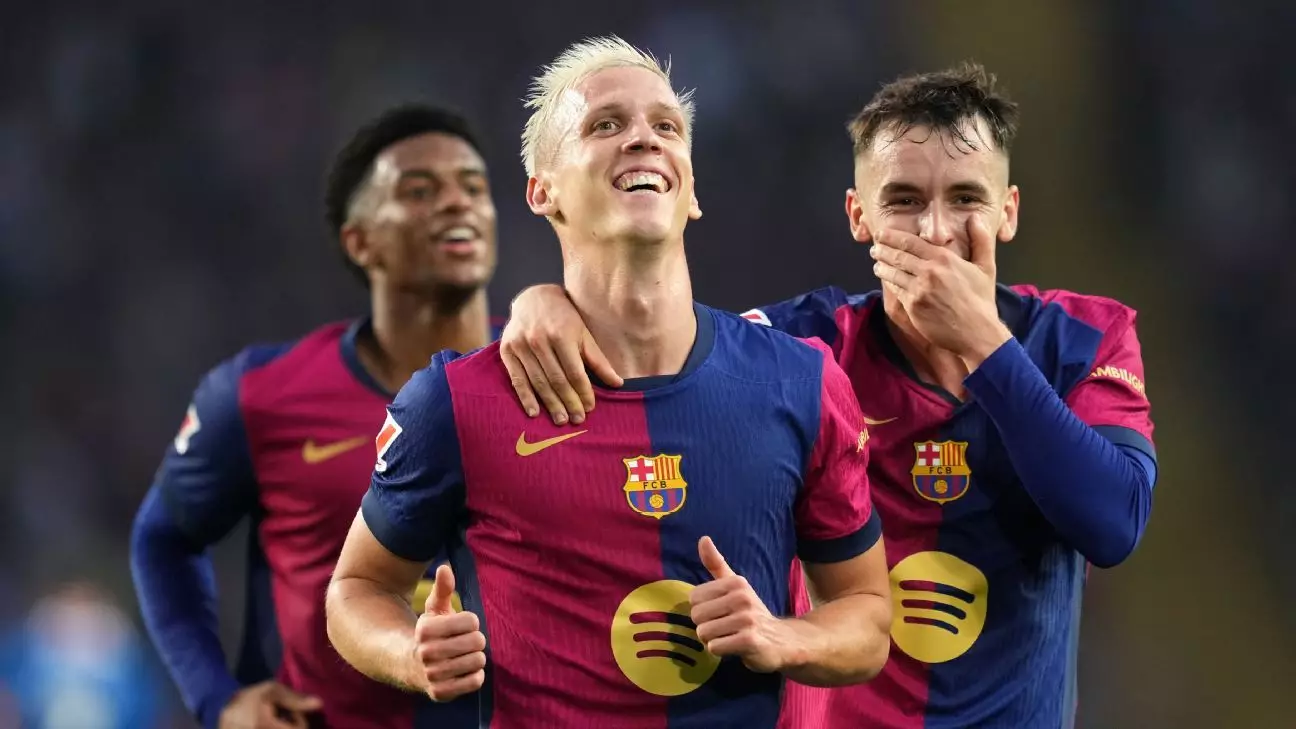The football world has recently witnessed a dramatic turn of events concerning FC Barcelona’s attempts to re-register two key players, Dani Olmo and Pau Víctor, for the latter half of the season. Following their significant summer signings, both players appeared poised for an impactful return. However, the interference of LaLiga and the Royal Spanish Football Federation (RFEF) has thwarted their immediate involvement in upcoming matches, particularly impacting their availability in the Copa del Rey. This situation serves as a microcosm of the broader issues plaguing Barcelona, not only in terms of player management but also under the looming shadow of financial regulations designed to maintain fair play.
LaLiga’s strict financial fair play (FFP) regulations aim to ensure clubs operate within their financial means, and unfortunately for Barcelona, this has resulted in relentless challenges. The club missed a critical deadline on December 31 to demonstrate compliance with these regulations. According to LaLiga, while Barcelona submitted all needed paperwork on January 3 to extend their spending limit, the late filing resulted in the cancellation of Olmo and Víctor’s registrations just two days prior. As they attempt to navigate these regulatory waters, Barcelona has voiced intentions to challenge the decision legally.
While the club prepares to appeal to Spain’s supreme sports court, the Consejo Superior de Deportes (CSD), the ramifications of this administrative setback suggest a precarious approach to compliance with FFP rules. This incident clearly illustrates the tension between club ambitions and regulatory frameworks designed to uphold stability in football.
To initially maneuver within these constrictions, Barcelona leveraged a rule concerning injured players, enabling them to temporarily register Olmo and Víctor. This tactic shows both the ingenuity and desperation of a club attempting to balance their financial landscape with sporting aspirations. The club reportedly engaged in selling VIP boxes in an effort to raise funds—an ambitious move aiming for about €100 million. However, the inability to furnish LaLiga with timely proof of this agreement reinforces a perception of mismanagement in planning and executing strategies that comply with league regulations.
This situation presents inquiries regarding Barcelona’s long-term strategy. By operating in a high-risk zone, the club seems to be testing the resilience of regulatory frameworks while simultaneously courting significant financial pitfalls. It raises questions regarding whether management is adequately addressing the long-term implications of their current financial strategies.
Dani Olmo and Pau Víctor find themselves caught in an intricate web of legal disputes and regulatory limitations, leaving them in a precarious position. Both players have demonstrated their worth on the pitch, with Olmo netting six goals in 15 appearances and Víctor contributing two goals in 17 outings. Their current predicament is compounded by the reality that clauses in their contracts allow for departures if they remain unregistered. Nonetheless, sources suggest that neither player is keen on exploiting these clauses despite their disappointment.
The complexities involved in potentially transferring or loaning them out complicate matters further. The absence of valid federative licenses prevents immediate loans, and terminating contracts poses significant hurdles. In essence, the players are left with slim options, highlighting the human element that often becomes overshadowed by the machinations of football governance.
Barcelona’s struggle to balance competitiveness with compliance raises enduring issues about their financial health and overarching strategies moving forward. The club, once a beacon of talent and success, faces mounting scrutiny as it grapples with the practicalities of FFP. Adopting a confrontational stance through legal challenges may reflect desperation but could also signal a broader question regarding foreign interpretations of club regulations.
The road ahead is uncertain for Barcelona, Olmo, and Víctor. Whether they can successfully navigate the turbulent waters of sports regulation and finance remains to be seen. As the appeal process unfolds, the outcome may set a significant precedent not only for Barcelona but across football leagues that grapple with similar regulations. This nuanced situation will require careful monitoring, and fans and analysts alike will watch with bated breath for the resolutions yet to be revealed.

